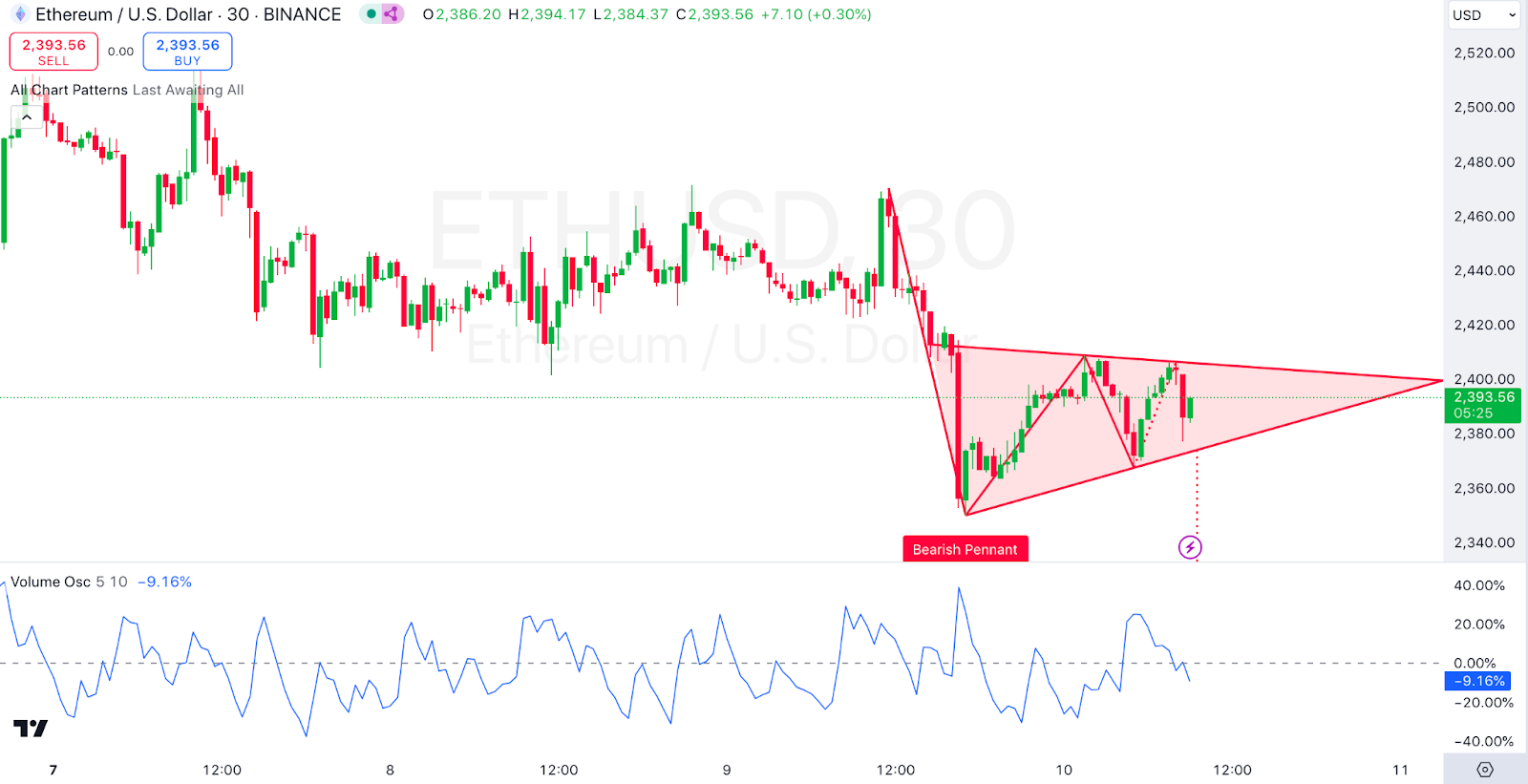In just the past week, more than $750 million worth of Ethereum has been withdrawn from major crypto exchanges.
This trend often suggests that investors are opting for long-term holding rather than preparing to sell. According to CoinMarketCap data, the altcoin’s daily trading volume has also surged over 80%.
Ethereum’s Exchange Reserves Keep Declining
Data from CryptoQuant highlights a steep decline in Ethereum’s exchange reserves, which have dropped from over $42 billion to about $38.9 billion recently. This movement reflects more than $4 billion in ETH being pulled off exchanges.
Read More: Ethereum (ETH) Price Prediction 2024/2025/2030
This reduced reserve of Ethereum on exchanges can tighten liquidity, which may stabilize or push prices up if buying demand holds steady. When fewer tokens are available for quick purchase, increased buying activity can more directly impact prices.
Ethereum has shown limited momentum in recent months. While the second-largest cryptocurrency by market cap lost nearly 6% in October, its largest competitor, Solana, experienced a 12% gain.

The recent rise in Ethereum profit-taking also reached a two-month high, with several holders capitalizing on previous gains. This trend has added to recent price shifts as some investors chose to cash out.
Ethereum is undervalued imo. I’m turning some profits into eth. We have some resistance levels at $2,901.63, suggesting a potential upside move if the price breaks higher. Weekly support is at $2,107.48, providing a strong demand zone. Price could either bounce off the pivot for upward momentum or revisit weekly support before gaining strength,” influencer Crypto Caesar wrote in an X (formerly Twitter) post.
Regardless of the market movements, the network has been focused on improving its scalability. Ethereum’s co-founder, Vitalik Buterin, recently unveiled “The Purge,” a planned upgrade focusing on streamlining data storage and reducing protocol complexity.
This upgrade is critical for the network’s long-term goals of achieving greater scalability, security, and sustainability.
Read More: Who Is Vitalik Buterin? An In-Depth Look at Ethereum’s Co-Founder
Additionally, Buterin addressed why the Ethereum Foundation chooses to sell a portion of its holdings rather than stake them. The have been growing community concerns about the Foundation’s resource management.
Buterin stressed that staking could lead the Foundation to take an official stance on certain network upgrades during hard forks, which would potentially hinder decentralization.
 beincrypto.com
beincrypto.com
